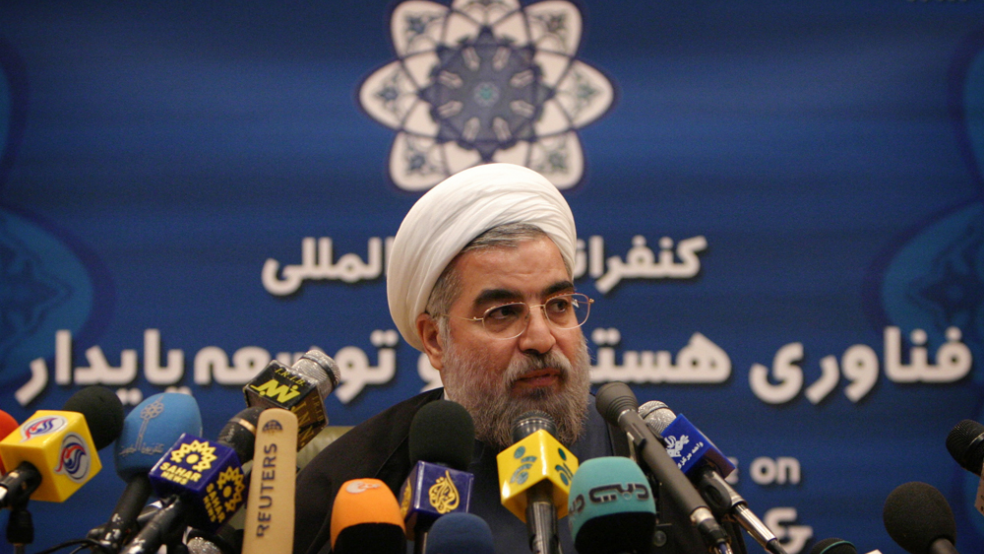Iranian President Hassan Rouhani continued his charm offensive toward the United States today, publishing an op-ed in the Washington Post asking the American people to engage in a “constructive” dialogue with Iran over its nuclear weapon program.
"We must work together to end the unhealthy rivalries and interferences that fuel violence and drive us apart," he wrote. "To move beyond impasses, ... we need to aim higher. Rather than focusing on how to prevent things from getting worse, we need to think - and talk - about how to make things better."
The op-ed is the latest in a series of events in a startling week of international diplomacy. Earlier this week, Rouhani indicated he would be willing to shut down a nuclear facility. Then it was revealed that he and President Obama had been writing letters to each other. Rouhani then said that Iran has no desire to acquire nuclear weapons. Now, he has appealed directly to the American people.
RELATED: IRAN OPENS THE DOOR TO NUCLEAR PROGRAM—FOR A PRICE
Few outside of each president’s inner circles could have anticipated these breakthroughs. And Rouhani’s reason for a willingness to negotiate is understandable: The economic sanctions that have been levied against his country are crippling its economy.
There are a few reasons to view Rouhani’s action with some skepticism. Relations between Iran and the United States have thawed in the past, but there has been no real progress toward shutting down the country’s nuclear program. Here are three reasons this current thaw may produce nothing but talk.
1) Rouhani’s timing is curious. Reports indicate that communication between Obama and Rouhani have been ongoing. So why did Rouhani chose this week to tell the rest of the world?
One explanation is that he’s publicly engaging Obama at a time when U.S. standing has been weakened abroad. Russia outmaneuvered the White House in Syria, forcing the issue to the U.N. Security Council. Also, the U.N. General Assembly meets next week, where Obama and Rouhani may sit down for a tête a tête. Meanwhile, Israel repeatedly warned that failing to act in Syria would embolden Iran. Speaking of Israel...
2) The Israelis don’t trust Rouhani. Israeli officials made this clear on Thursday, calling Rouhani’s action a form of deception.
"One must not be fooled by the Iranian president's fraudulent words," Prime Minister Benjamin Netanyahu's office said in a statement. "The Iranians are spinning in the media so that the centrifuges can keep on spinning." Strategic Affairs Minister Yuval Steinitz added, "There is no more time to hold negotiations."
Israel reiterated its demands: complete stop to uranium enrichment, dismantlement of an underground enrichment facility, removal of enriched uranium and an end to its nuclear weapon program. If Iran does not agree to all of this, Tel Aviv is unlikely to get onboard.
3) Rouhani might be moderate, but many in his country are not. His victory has been welcome in the west but make no mistake: There are still fundamentalists in Iran that want no part of a nuclear deal.
It’s also important to remember that talk is cheap. For instance, Rouhani has said that he’ll support whoever emerges victorious in Syria, but has sent troops there to support Bashar al-Assad. He also could simply be buying more time for Iran to develop a weapon. It’s been so long since inspectors have been there, no one really knows how advanced their program has become.
Rouhani’s actions this week give the United States reason to hope. But President Obama should be mindful that in the Middle East, deception is a diplomatic tool. A healthy does of skepticism is also in order.






